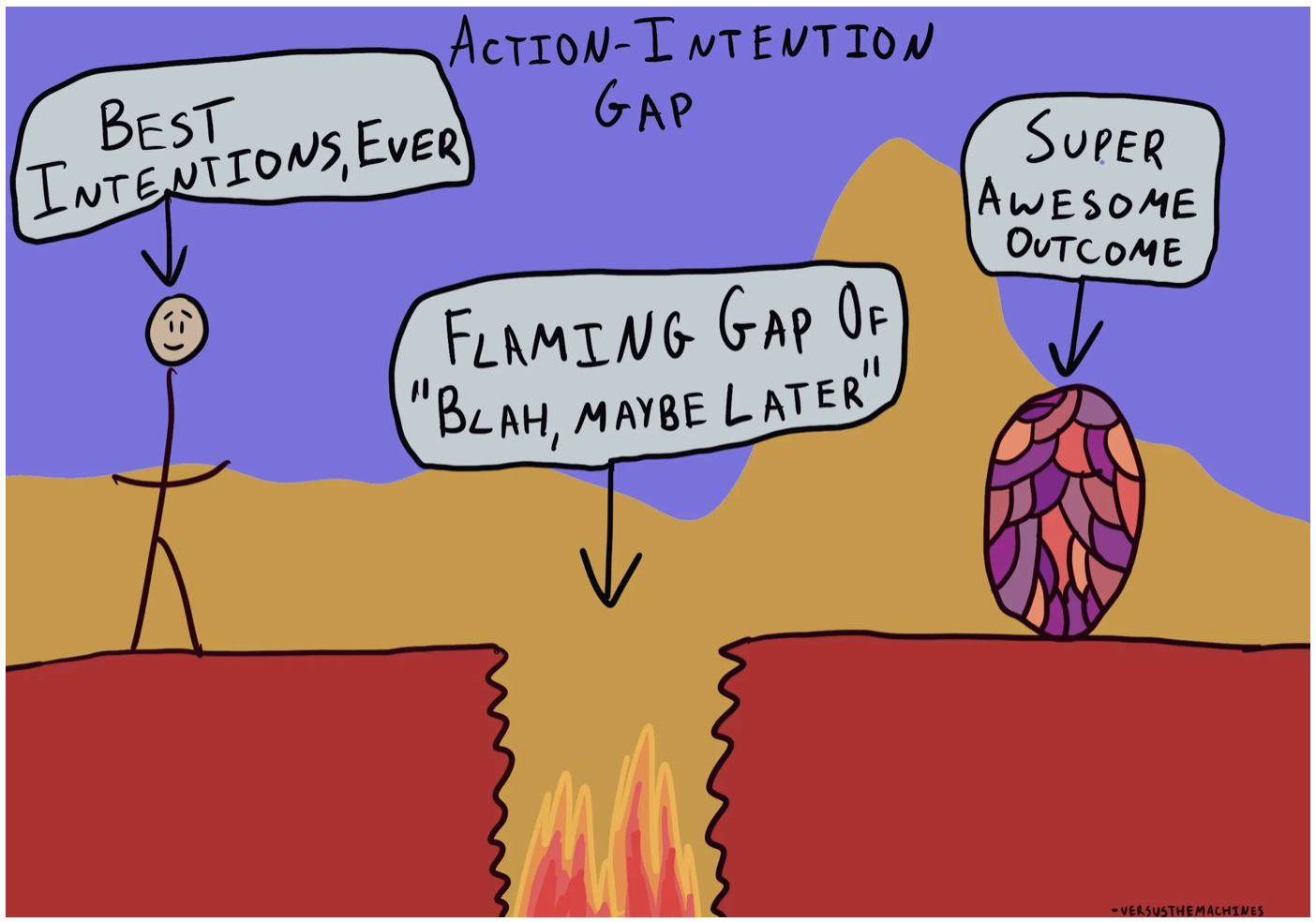Random Evidence
*“Enter through the narrow gate. For wide is the gate and broad is the road that leads to destruction, and many enter through it. *
But small is the gate and narrow the road that leads to life, and only a few find it”
Matthew 7:13-14 NIV
My Personal Experience
The intention-action gap has become one of the most studied topics in behavioral science since it can apply to so many different domains.
The Theory of Reasoned Action (TRA) and the Theory of Planned Behavior (TPB) rest on the assumption that behaviors are best predicted by intentions, which are shaped by attitudes about social norms regarding the behavior.
I have found, time and time again, the biggest barrier to success is in my thinking of massive action that overlooks the smallest, simplest, unit of action towards growing a habit.
HABITS are what lead us to our destination.
THAT’S WHY: PRACTICALITY SIMPLICITY win. Every. Single. Day.
People want to dream big and ignore the dirty shit that’s too small to matter.
But minimal viable products and scrappy ideas, ITERATIVELY AND CONTINUOUSLY IMPROVED are what lead to the final outcome.
This blog is a great example.
For so long, I wanted to have my own blog to share my own ideas; I wanted to created my own, pretty website to store all of my thoughts.
I think people are afraid of “wasting time” starting something that they think to too scrappy to be useful.
Sure, many times these scrappy MVPs are not anywhere near the ideal versions we had in our heads.
BUT THAT’S EXACTLY where people fail.
They stop at one MVP, when in reality they need more value. More practice. More muscle memory.
Yes, your first idea will fail. And that’s good, because you’r in the habit of building and bringing to life your ideas.
The habit of execution will beat the habit of inaction.

Let’s not forget too that the HABIT of action if TRANSFERABLE.
How you do anything is how you do everything
Even if your first 100 MVPs fail, your proclivity to take action and learn by doing will apply to everything else you do.
That cute girl you want to ask out–most guys will NEVER simply go up and ask for a date. She might say no, she might say yes–you won’t know until you try.
The only guarantee in life is death
The other issue I face is confronting a HUGE goal at face value, whether it’s a big intimidating project at face value, or confronting your fears.
Understand that all of these things are comprised of smaller, easier tasks.
There’s no need to confront the whole thing at once. It’s quite silly and leads to nearly guanteed failure.
Take the smallest step towards that big goal, and compound it with time as your ally.
And look, I get it, I often to fall in the mistake of “side-stepping around” my goals, thinking that it will get me closer to what I need to do.
But the surest way to know for sure what needs to be done is to put yourself out there to first see what you need to improve. It’s different for everyone.
Conclusion
But what gives us the idea of not working on the “small things?”
Attitude.
It is our attitude at the beginning of a test which, more than anything else, will determine its successful outcome
Attitudes about ourselves, other people, the world around us, our work, etc. It’s the same as core beliefs, which feed our labeling, which feed out actions. It’s all connected. CBT.
The degree to which one believes they can control an outcome will influence their willingness to engage, regarding their general control beliefs and their perceived power in the situation.
